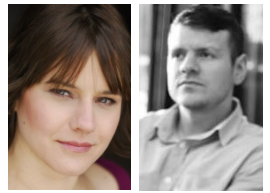 I just finished reading HEAD CASE: Can psychiatry be a science?, an excellent article by Louis Menand in the The New Yorker. The article makes clear what I’ve already come to realize over the last twenty years studying and working in the field of mental health — namely, that the field is a freakin’ mess. My field, the one referred to on those degrees I spent so much time and money on, is almost hopelessly mired in conflict-of-interest corruption, bad philosophy, and wrong-headed (although often well-intentioned) approaches to alleviating human suffering. The situation is almost hopeless I say, but despite the sorry state of the field, I continue to consider myself a psychologist at heart. And I’m getting tired of wallowing in the muck and mire of it all, tired of hearing myself whine about how stupid everyone must be not see things the way I see them.
I just finished reading HEAD CASE: Can psychiatry be a science?, an excellent article by Louis Menand in the The New Yorker. The article makes clear what I’ve already come to realize over the last twenty years studying and working in the field of mental health — namely, that the field is a freakin’ mess. My field, the one referred to on those degrees I spent so much time and money on, is almost hopelessly mired in conflict-of-interest corruption, bad philosophy, and wrong-headed (although often well-intentioned) approaches to alleviating human suffering. The situation is almost hopeless I say, but despite the sorry state of the field, I continue to consider myself a psychologist at heart. And I’m getting tired of wallowing in the muck and mire of it all, tired of hearing myself whine about how stupid everyone must be not see things the way I see them.
So I’m making a concerted effort to be more constructive in my rantings and ravings instead of merely tearing into whatever pushes my buttons. I don’t want throw out the babies with the bath water, so to speak, because there’s usually some truth to be found in most perspectives. That’s the whole point of an integral approach to health, to weave together what’s useful so that problems can be approached more effectively.
The challenge though, is to figure out exactly which perspectives are appropriate or useful in what specific contexts, to articulate how various partial truths fit together into a comprehensive plan of action. I’m hoping to rise to that challenge in the coming weeks by diving deeper into this integral inquiry through engaging others’ perspectives, reflecting on my experiences, and writing about whatever struggles and insights come along the way.
I’ll sign off for today with what I think is the most interesting part of Menand’s piece, where he ventures into this integral territory with some provocative reflections:
Mental disorders sit at the intersection of three distinct fields. They are biological conditions, since they correspond to changes in the body. They are also psychological conditions, since they are experienced cognitively and emotionally—they are part of our conscious life. And they have moral significance, since they involve us in matters such as personal agency and responsibility, social norms and values, and character, and these all vary as cultures vary.
Many people today are infatuated with the biological determinants of things. They find compelling the idea that moods, tastes, preferences, and behaviors can be explained by genes, or by natural selection, or by brain amines (even though these explanations are almost always circular: if we do x, it must be because we have been selected to do x). People like to be able to say, I’m just an organism, and my depression is just a chemical thing, so, of the three ways of considering my condition, I choose the biological. People do say this. The question to ask them is, Who is the “I” that is making this choice? Is that your biology talking, too?
 In this episode of the Integral Health Resources Podcast, I review an excellent article by Allen Frances in which he excoriates us all for turning a blind eye to those in our society who need mental health services the most.
In this episode of the Integral Health Resources Podcast, I review an excellent article by Allen Frances in which he excoriates us all for turning a blind eye to those in our society who need mental health services the most.


 I just finished reading
I just finished reading